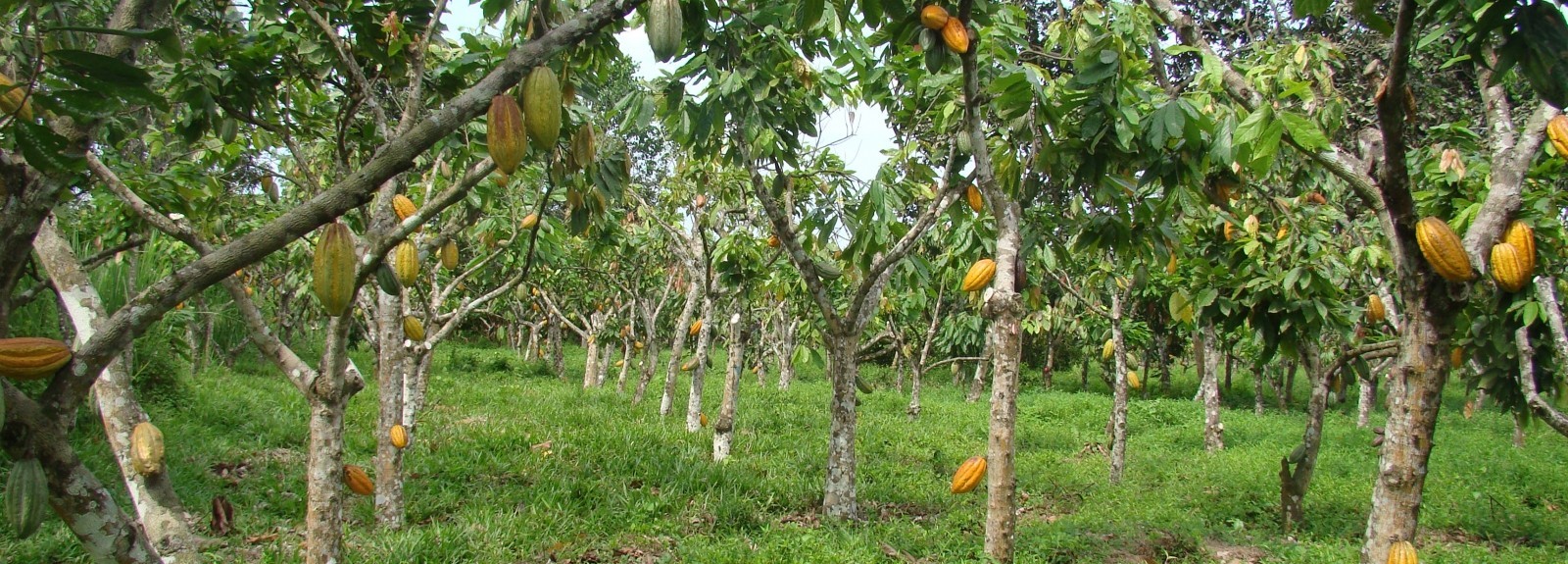This post was co-authored by Luis Orozco Aguilar (Lutheran World Relief) and Eduardo Somarriba (CATIE).
The Maximizing Opportunities in Coffee and Cacao in the Americas (MOCCA) project is a multi-country initiative led by Technoserve and funded by the U.S. Department of Agriculture that helps Latin American farmers overcome barriers to effectively rehabilitate and renovate their coffee and cocoa plants – increasing their productivity while improving their marketing capacity, income and livelihoods. Lutheran World Relief leads MOCCA’s cacao programming, helping farmers sell more at better prices, improving farmer production and enhancing sector coordination to drive competitiveness and growth.
The MOCCA project has contributed significant data and research to the recent article Rehabilitation and Renovation of Cocoa Agroforestry Systems, published in the peer-reviewed journal Agronomy for Sustainable Development. Written in collaboration with partners from Tropical Agricultural Research and Higher Education Center (CATIE), French Agricultural Research Centre for International Development (CIRAD) and World Agroforestry (ICRAF), the paper documents the evolution of cocoa renovation & rehabilitation (R&R) approaches and presents the best agronomic practices to inform technical staff and support farmers.
Heavy pruning to lower tree height and shape tree crown in Guayas, Ecuador. (Photo: Eduardo Chavez, ESPOL)
The Importance of Renovation and Rehabilitation (R&R) in Cocoa
Across Central America and the Caribbean, old and unproductive trees, pests, diseases and changing climatic patterns are adversely impacting the production of quality cacao and forcing some farmers to abandon the crop. At present, most farmers are not renovating and rehabilitating their cacao plots or are unable to do so in a way that maximizes their production and economic outcomes. Across the region, smallholder farmers' profits from cacao production are declining due to a lack of farm-level investment in R&R and plot maintenance. These limitations are driven by price risk in addition to insufficient technical capacity, access to capital and access to reliable genetic material for planting.
There are several agronomic practices that can be implemented at the farm level to increase yields on existing plantations. For instance, R&R in cocoa should focus on pruning, replanting, and grafting. Rehabilitation, including pruning, stumping, and grafting of trees, allows for productivity improvements of plots where yields are low due to poor farm management or disease. Removing trees that are planted too close to each other is another way of allowing existing trees to reach maximum capacity. Finally, replanting trees that have passed their peak productive years raises productivity in the long term but must be combined with financing to cover farmers’ loss of income during the regrowth period.
Previous R&R programs, mainly implemented in Africa, have shown that smallholder farmer yields can be raised from 500 kg/ha to 1 ton/ha with well-managed R&R plans. The potential of R&R to substantially increase the production of existing cocoa plots should be seen as an indication that meeting an increase in cocoa demand is possible without causing further deforestation in Latin America.
Farmers from the province Los Rios, Ecuador conducting rehabilitation of old and unproductive cacao orchards. (Photo: Cristian Noboa, ANECACAO)
Strengthening Cocoa Capacity through MOCCA
Working collaboratively, the MOCCA project seeks to mainstream these R&R interventions across the region, so farmers better understand the benefits of R&R in cocoa, gain the knowledge and skills to conduct R&R, have access to high-quality inputs and affordable financing, and participate in higher-value trading models. By supporting farmers in carrying out low-cost rehabilitation practices that will increase their profitability and catalyze a cycle of R&R investments, Lutheran World Relief will continue to lead a comprehensive approach to promote cocoa production and strengthen local capacity for transformative change in the sector.
Access the peer-reviewed article:
Rehabilitation and Renovation of Cocoa (Theobroma cacao L.) Agroforestry Systems
_______________________________________________________________________________________
Join us at MOCCA’s 1st Latin American Scientific Conference on Cocoa on November 24-25, 2021.
The conference will be an opportunity for cacao stakeholders to come together to network, share research and find ways to strategically collaborate for the advancement of the sector. Pre-register now.


